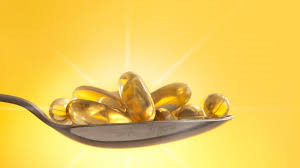Written By: Dr Natalie Ledbetter
The Amazing Vitamin that is Really a Hormone- Vitamin D
Vitamin D has gotten a lot of press lately and for a good reason. It is an incredible substance that plays a huge role in many functions in our bodies. It is a fat-soluble vitamin that is also a hormone precursor. Vitamin D is necessary for the proper functioning of our bodies and there are many benefits to having optimal vitamin D levels.
Higher levels of vitamin D in the body are associated with decreased incidence of:
- Most cancers
- Heart disease
- Dementia
- Autoimmune diseases
- Cold and Flu
- Asthma
- Diabetes
- Stroke
- Multiple Sclerosis
- Cognitive Decline
- Inflammation
Higher vitamin D levels increase bone density and delay telomere shortening which is thought to slow down the aging process.
For increased health and wellness and to help prevent diseases like the ones listed above, practitioners in the functional medicine world like to see vitamin D ls of around 80 ng/ml. In order to achieve this level, doses of 2,000 to 6,000 IU a day combined with K2 are usually prescribed and as much as 10,000 IU a day may be necessary if the vitamin D levels are starting really low, such as 30 or below.
Decreased absorption is seen in people who have had gastric bypass or other gastrointestinal surgeries. Crohns or celiac disease, small intestine bacterial overgrowth (SIBO), and surgery to remove the gallbladder also decrease the absorption of vitamin D through the gut. In these cases, vitamin D shots may be prescribed.
It does matter where you get your supplements. An analysis of over the counter vitamin D products revealed that the potency ranged from 9-146% of the amount listed on the label. For this reason it is important to purchase from companies that perform lab analysis of their products and that are reputable and known for pure, high quality ingredients.
Companies we have researched, and trust include Orthomolecular, Thorne, Allergy Research Group, Designs for Health, Pure Encapsulations, Jarrow, and Now.
If you are not taking a vitamin D supplement, you should be. The best way to know what the appropriate dose is for you is to see your health and wellness practitioner and have your vitamin D levels tested. Knowing your blood levels will allow your practitioner to prescribe the amount that is right for you and keep your levels in the high but safe range.
